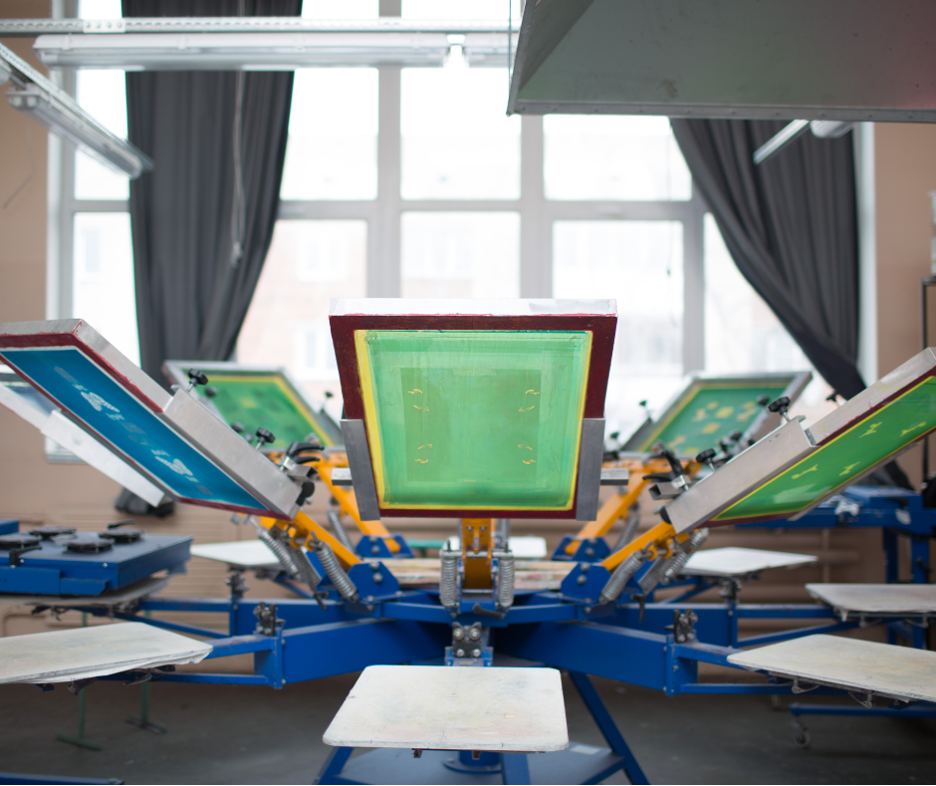In the world of screen printing, achieving optimal results goes beyond selecting the right mesh and ink. One crucial yet often overlooked aspect is mesh tension. Proper tension is the key to consistent, high-quality screen printing, playing a significant role in print registration, ink transfer, and overall print quality. In this blog, we will dive deep into the importance of tension, how to determine the correct tension for your screen-printing process, and best practices for maintaining it.
Importance of Proper Tension
Tension is the force with which the mesh is stretched over the frame. Proper tension ensures the stencil remains stable and parallel during the printing process, allowing for a clean and precise transfer of ink. There are several reasons why proper tension is essential:
- Print registration: Proper tension ensures the stencil stays in position, preventing misalignment or distortion of the image.
- Ink transfer: good tension allows for even ink distribution and smooth prints, reducing the risk of ink bleeding or smudging.
- Print durability: A well-tensioned mesh helps maintain the stencil's integrity and prolongs its life, reducing the need for frequent replacements.
- Controls all other Print Variables... (more on that in the future)
Measuring Tension: The Tools You'll Need
To accurately measure the tension of your mesh, you will need a tension meter, a device specifically designed for this purpose. Tension meters are available in mechanical or digital models and measure tension in Newtons per centimeter (N/cm) or pounds per square inch (PSI). When selecting a tension meter, choose a reliable model suitable for screen printing applications.
Determining the Correct Tension
The ideal tension for your screen-printing project depends on several factors, including the mesh count, frame size, and print application. Here are some general guidelines to help you determine the correct tension:
- Lower mesh counts: Lower mesh counts (below 160 TPI) typically require a tension between 25 and 35 N/cm.
- Medium mesh counts: For medium mesh counts (160-196 TPI), aim for a tension between 20 and 28 N/cm.
- Higher mesh counts: Higher mesh counts (above 200 TPI) usually require a tension between 15 and 26 N/cm.
Keep in mind that these figures are approximate and may vary depending on your specific printing application. Consult your mesh manufacturer or conduct tests to determine the optimal tension for your unique project.
Achieving Proper Tension
There are several techniques to ensure your mesh is properly tensioned:
- Stretching methods: Utilize mechanical stretching methods, such as roller frames, pneumatic stretchers, or manual stretching devices, to achieve consistent tension.
- Pre-tensioned frames: Consider using pre-tensioned frames to maintain the proper tension throughout the printing process.
- Tensioning best practices: Ensure your stretching device is properly calibrated and maintained. Stretch the mesh evenly and consistently and allow it to stabilize before attaching it to the frame.
Monitoring and Maintaining Tension
To maintain the correct tension and ensure consistent print quality, it is essential to regularly monitor and adjust tension as needed:
- Routinely check tension: Use a tension meter to check the tension before and after each print run or whenever you suspect tension issues.
- Re-tension as needed: If the mesh tension falls below the recommended range, re-tension the mesh to the appropriate level.
- Replace worn or damaged mesh: Over time, mesh can lose its elasticity or become damaged. Replace the mesh when it no longer holds the proper tension or exhibits signs of wear.
Proper tension is a critical factor in achieving high-quality screen prints. It ensures accurate print registration, even ink distribution, and stencil durability. To achieve optimal tension, remember to use the right tools, measure tension accurately, and select the appropriate tension range for your mesh count and print application. At MicroScreen, we provide reliable services for stencils, screens, and microelectronics accessories to help you achieve the best results.
Contact us today for all your screen-printing needs and experience our unrivaled customer service, quick turnaround times, and knowledgeable sales representatives.
